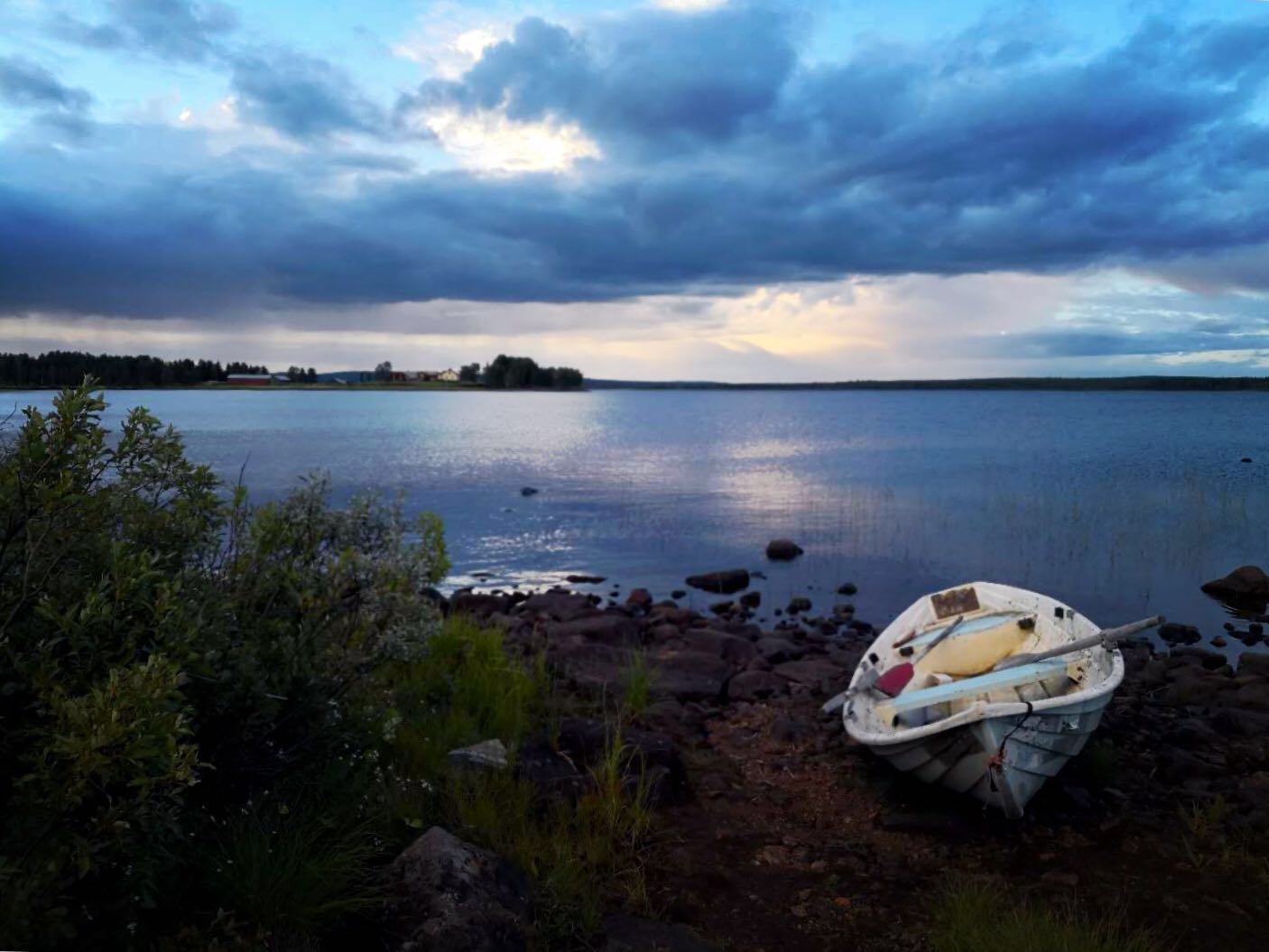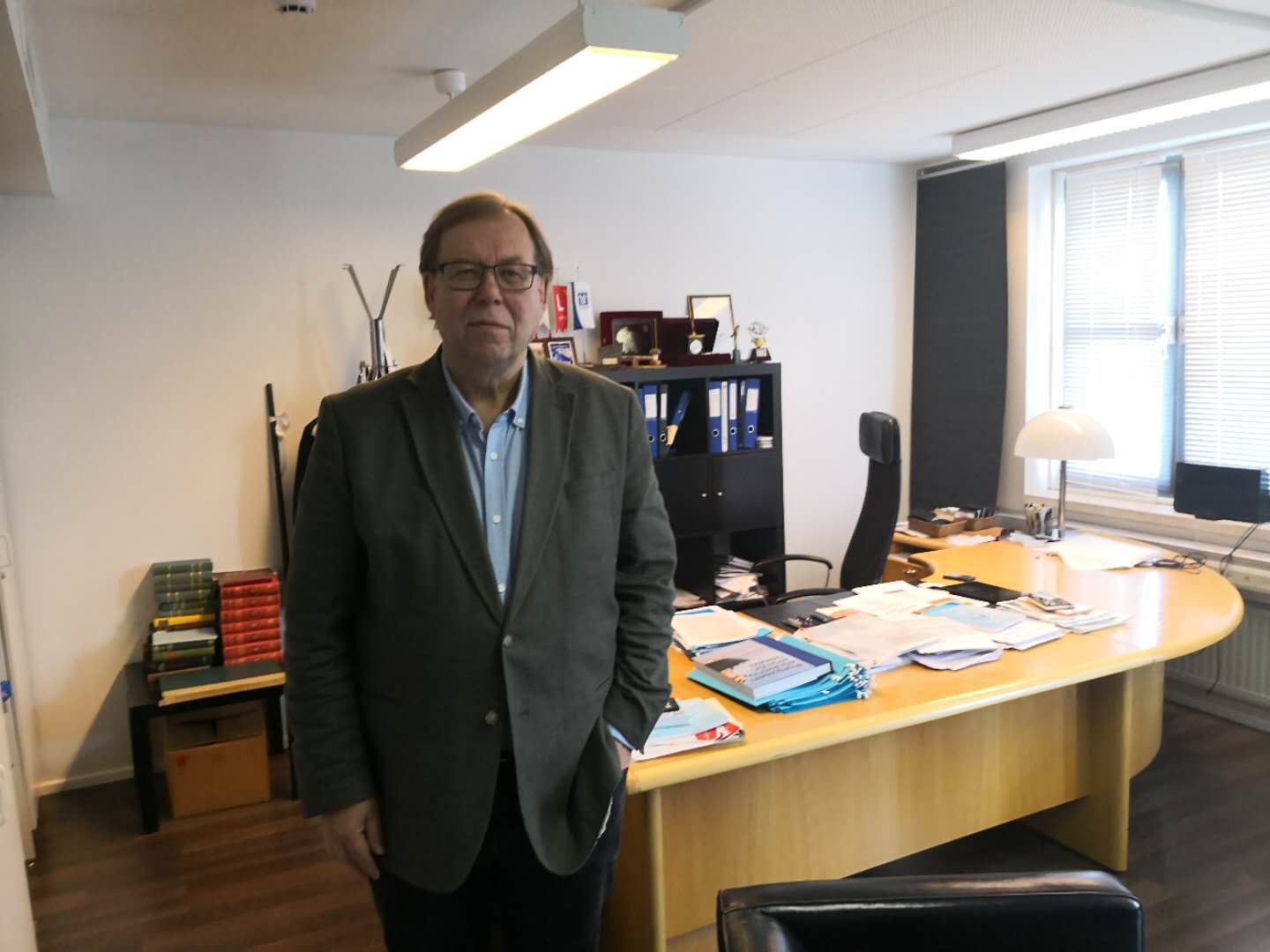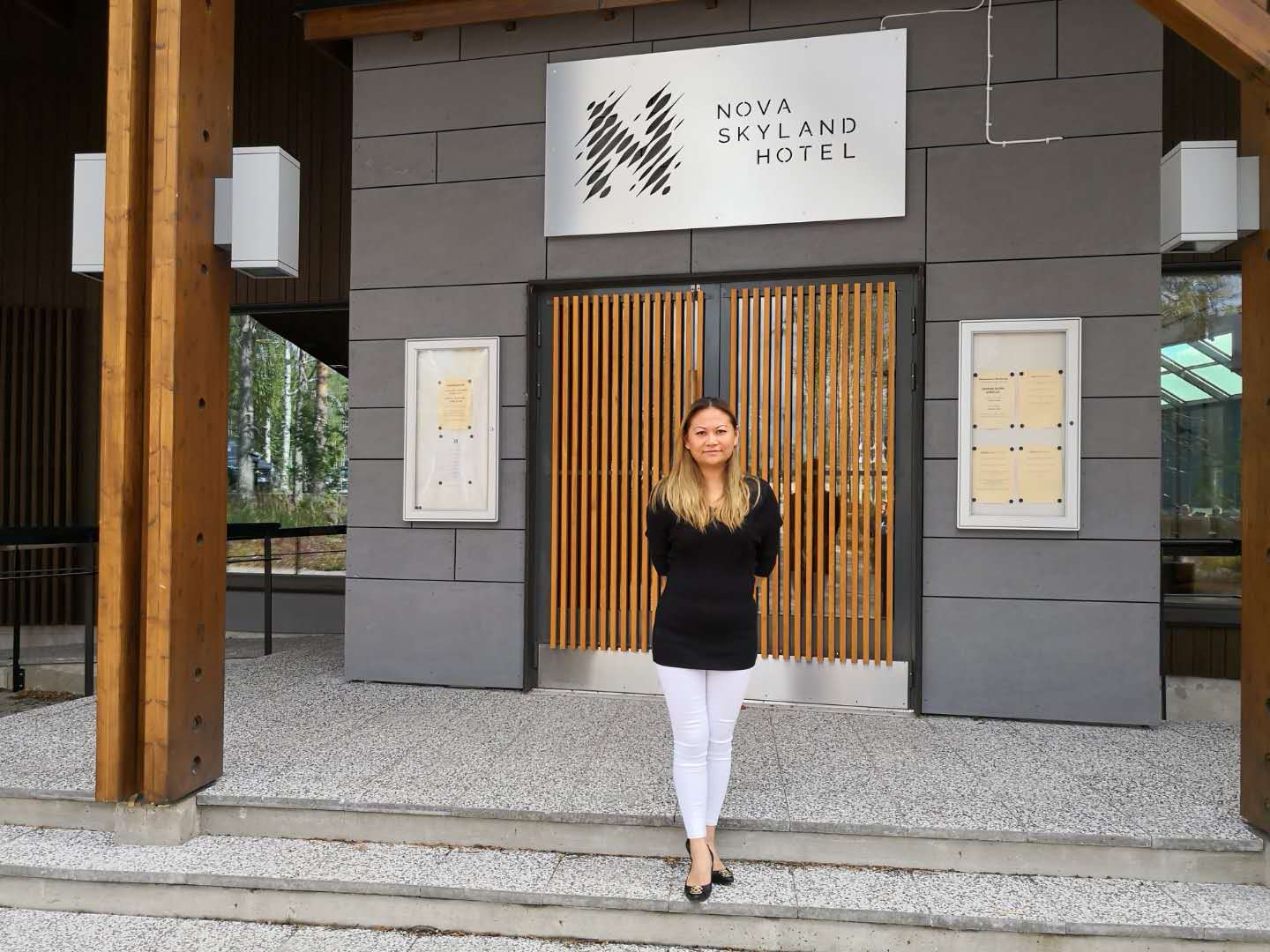By Tom McGregor, commentator and copy editor for CCTV.com Panview
Editor’s Note: At the invitation of the City of Rovaniemi, Finland, CCTV.com Panview took a tour to visit tourist sites and had exclusive interviews with local government officials and business leaders. Senior executives at Finnair also spoke to CCTV.com as well.

The Arctic Circle may seem like a territory that stands as cold and barren, which many imagine would be uninhabitable. But appearances and stereotypes can be deceiving and if you have a chance to visit the Arctic, you may discover it’s Earth’s new frontier for business.
Timo Rautajoki, CEO (chief executive officer) of Lapland Chamber of Commerce, highlighted the areas of opportunity for the local business community, as well as foreign investors who are considering doing business in Lapland, which covers territories in northern parts of Finland, Sweden, Norway and Russia.
"The big business story right now in Lapland is that the governments from Nordic countries and Russia plan to build more railroad networks here," said Rautajoki. "Russia has signed up with China's Belt & Road Initiative. Beijing and Moscow have signed deals to connect rail lines from China to Russia through the Trans-Siberia Railways and later on we anticipate the rail networks will extend to Eastern Europe and Nordic nations."
Helsinki has not yet signed up as a member to join China's Belt & Road Initiative, which supports the construction of major joint infrastructure projects among member states in Asia, Africa, the Middle East and Europe to boost cross-border trade and investments.
Rautajoki sees the benefits of Finland potentially joining the Belt & Road Initiative as he noted China could help his country construct more extensive railway networks. Additionally, Finland has scored in the top of international rankings in education, which does appeal to Chinese families who might be thinking about moving to Lapland.
"Although Chinese companies and people have not signed up for membership of Lapland Chamber of Commerce, more Chinese are doing business here. The Chinese are taking a closer look at investing into our industrial sectors, including mining, timber, stainless steel and energy projects - LNG (liquefied natural gas), oil and biofuels."
The Chinese companies are exploring purchases of pulp mills and a biofuel project, valued at 1 billion euros.

Timo Rautajoki, CEO (chief executive officer) of Lapland Chamber of Commerce, talks about China's Belt & Road Initiative at his office in Rovaniemi, Finland. (Photo/ Tom McGregor)
Rautajoki had also spoken about Finland's neighbor Russia and discussed how the Belt and Road Initiative has played a crucial role to keep Russia strong. A research consultant from Iceland, Egill Nielsson, who works in Shanghai for the think tank - China Nordic Arctic Research Center (CNARC) - holds similar viewpoints with Rautajoki.
"The US$40 bn. Yamal LNG Port in northern Russia was the first Belt and Road project in the Arctic with financing coming from China’s Ex-Im Bank with construction completed in 2017 and production starting this year," Nielsson told CCTV.com Panview. "The Yamal LNG will later get connected with railroads and a new airport, located at Sabella Port."
Nielsson believes Chinese investors can take part in bigger plays in the region. "20% of all natural resources in the world can be found in the Arctic Circle. You can tap into huge resources of oil, gas, fresh water, seafood, mining and mineral, along with tourism."
Nielsson explained that the group, Arctic Business Circle, has taken an active role in studying the impact of Climate Change and how the further melting of polar ice caps and warmer summers can open up new shipping routes for exporters.
"I worked with a team in China on a paper called, 'Polar Silk Road.' We have conducted extensive research into exploring shipping routes in the Arctic Circle," said Nielsson. "China’s State Council has already announced there will be three major shipping routes for the Belt & Road and the Arctic is mentioned in the policy paper."
Both RautajoKi and Nielsson see grand opportunities for Chinese investors. And more members of China's business community are beginning to arrive in Lapland.
Mrs. Tian Zhang, from Nanjing, China and CEO of Nova Skyland Hotel opened up a hotel last November. She has lived and worked in Rovaniemi, Finland since 2002 when she first came as a student and enrolled at Lapland University. She later on married a Finnish man and they are raising two children together.

Mrs. Tian Zhang, CEO - Nova Skyland Hotel - Rovaniemi, Finland (Photo/ Tom McGregor)
She takes pride in the hotel she has built with a group of investors from Nanjing and believes that more Chinese will visit her new hometown for tourism and to negotiate business deals. She has no plans to return to her native country.
"On my first day in the country here, I already knew I wanted to stay," Zhang told CCTV.com. "The Finnish people are not as competitive as the Chinese so they can come here and live a peaceful life and be with nature.
Although Rovaniemi in the summer is a slow season for tourism, since winter is the most popular season for visitors, her hotel restaurant at lunch hour was crowded as the staff served a buffet of authentic Lapland cuisine.
Zhang's success story in Rovaniemi and the optimism of Lapland's business community demonstrates that we all should view the Arctic Circle as the next 'Land of Opportunity.'
(The opinions expressed here do not necessarily reflect the opinions of Panview or CCTV.com. )

Panview offers a new window of understanding the world as well as China through the views, opinions, and analysis of experts. We also welcome outside submissions, so feel free to send in your own editorials to "globalopinion@vip.cntv.cn" for consideration.
















